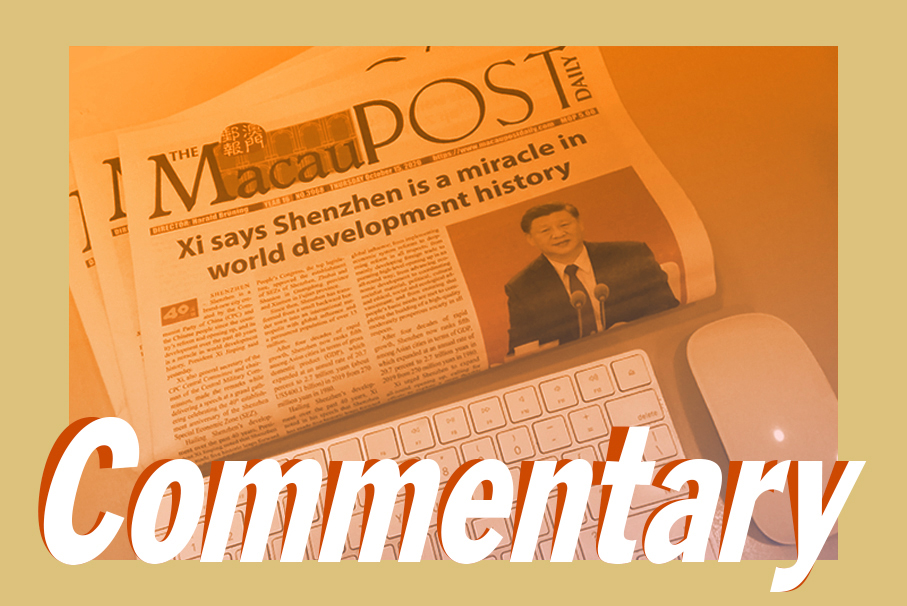Editorial
The World Health Organisation (WHO) regards vaccination hesitancy as one of the top ten global health threats and in Macau it has become the public enemy No.1 because it jeopardises our city’s enviable position as one of the world’s safest places during the COVID-19 pandemic.
Secretary for Social Affairs and Culture Elsie Ao Ieong U’s strong vaccination appeal on Saturday was opportune – and not a moment too soon.
Novel coronavirus vaccination hesitancy in Macau is mainly due to complacency (“no need”) and lack of confidence (“not safe”). Both are misplaced.
Thank goodness, however, there seem to be no dogmatic anti-vaxxers in Macau – unlike in the US and EU.
The point is that vaccination is the least painful way of achieving herd immunity.
The WHO describes herd immunity as the indirect protection from an infectious disease that happens when a population is immune either through vaccination or immunity developed through previous infection. The WHO supports achieving herd immunity through vaccination, not by allowing a disease to spread through any segment of the population, as this would result in unnecessary cases and deaths.
However, the WHO underlines that the percentage of people who need to be immune in order to achieve herd immunity varies with each disease, such as 95 percent for measles and 80 percent for polio.
While the WHO admits that the proportion of the population that must be vaccinated against COVID-19 to begin inducing herd immunity is still not known, attempts to reach herd immunity through exposing people to a virus are scientifically problematic and unethical.
As far as COVID-19 is concerned, vaccinologists have placed the threshold at 60-70 percent of the population gaining herd immunity, either through vaccinations or past exposure to the virus.
Be that as it may, in order to achieve herd immunity in Macau many more people here need to get their two jabs. So far just 15.6 percent of the population has received at least one COVID-19 jab, according to yesterday’s statistics. That’s even lower than in Hong Kong, where experts are bitterly complaining about the low vaccination rate.
A leading medical professor told RTHK yesterday that many Hong Kong people should be “ashamed of themselves” for not getting inoculated against COVID-19, when people around the world are dying because of a shortage of vaccines.
Lam Tai-hing from the University of Hong Kong’s School of Public Health deplored that – although vaccines are highly accessible – Hong Kong, at just around 20 percent, has one of the lowest inoculation rates in the world.
Mainland China is a shining example of the global vaccination drive – over 600 million COVID-19 doses have been administered. That’s no mean feat.
Macau people’s vaccination hesitancy is difficult to comprehend – the jabs are free of charge, they can be easily booked (the government even plans to launch walk-in vaccinations), there is an ample supply of them, people can choose between two brands (Sinopharm and BioNTech), and vaccination stations are conveniently located (“near your home”) around the city. So no-one can complain about lack of convenience or availability.
Lack of confidence in the two brands of vaccines available here is also incomprehensible. The number of adverse events stood at 0.44 percent yesterday (749 cases out of 169,965 doses). That’s VERY low. Of course, each adverse event is one too many but we have to be realistic. I doubt whether there exists any kind of vaccine that is 100 percent safe, but medical history has shown that vaccines are saviours.
I think it’s high time for the government and civil society to be more pro-active in persuading our fellow citizens of the need to get inoculated against the nasty virus in order to protect themselves and those around them. It’s a matter of discipline and solidarity.
More imagination is required to speed up the vaccination campaign through innovative means. For instance, Thailand and the Philippines are offering fully vaccinated farmers free cows (so-called “cow-for-jab” programmes) to boost rural areas’ inoculation rates. In Hong Kong, a developer has launched a lucky draw, for vaccinees to win a HK$10.8 million one-bedroom flat as the grand prize, which also offers 20 other prizes worth HK$100,000 each. TVB reported yesterday that more businesspeople are preparing raffles to induce Hongkongers to get their jabs. Governments elsewhere have offered hard cash to vaccinees.
Macau’s casino operators and tertiary education institutions have joined the Health Bureau’s vaccination campaign by setting up temporary vaccination centres on their premises. That’s commendable.
But more needs to be done to raise our city’s vaccination rate which is the conditio sine qua non so that the government can ease its quarantine measures and lift its border entry curbs. I am sure that most of us can’t wait to travel to our favourite destinations again as soon as possible. So, please, do not hesitate and get vaccinated!
Macau as a world centre of tourism and leisure must be safe in terms of public security and public health. A low vaccination rate is unsafe both for locals and visitors.
As a realist about human nature, I strongly believe in carrot-and-stick motivation, i.e. the combination of reward and punishment to induce a desired behaviour among the population. For instance, local residents could be rewarded for finally getting their COVID-19 jabs by gaining priority or even free access to certain events or museums, and they could be “punished” by being barred from air travel or access to certain public facilities.
Macau can take great pride in its successful anti-COVID measures that have turned our city in one of the safest places on Earth during the pandemic. So let’s do our best to ensure that Macau will also achieve one of the world’s highest vaccination rates before long. We will all benefit from it.
– Harald Brüning








